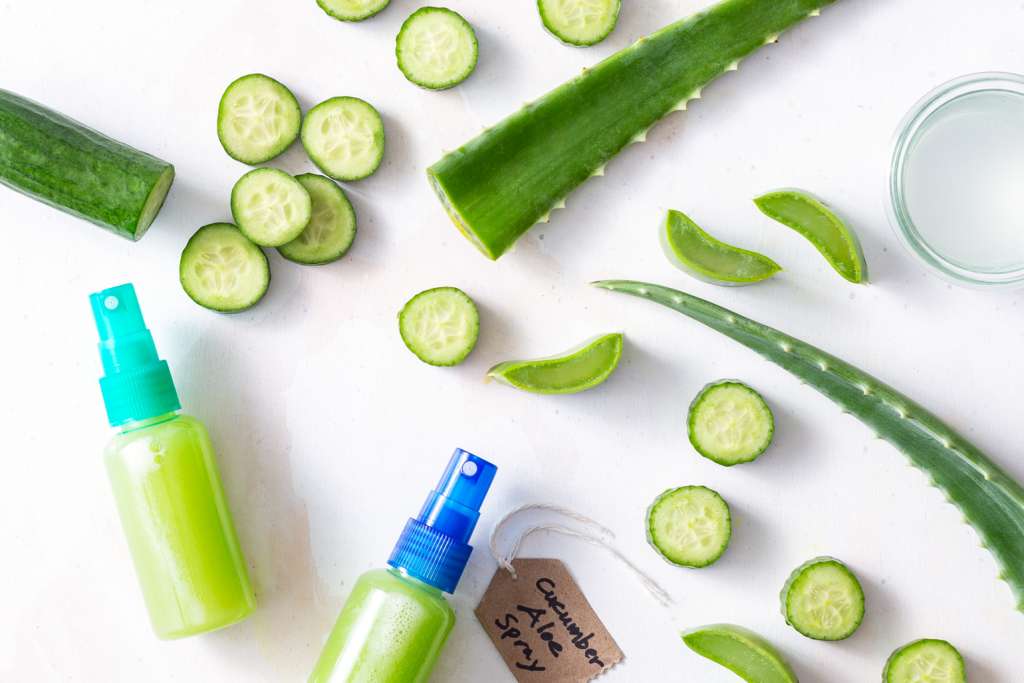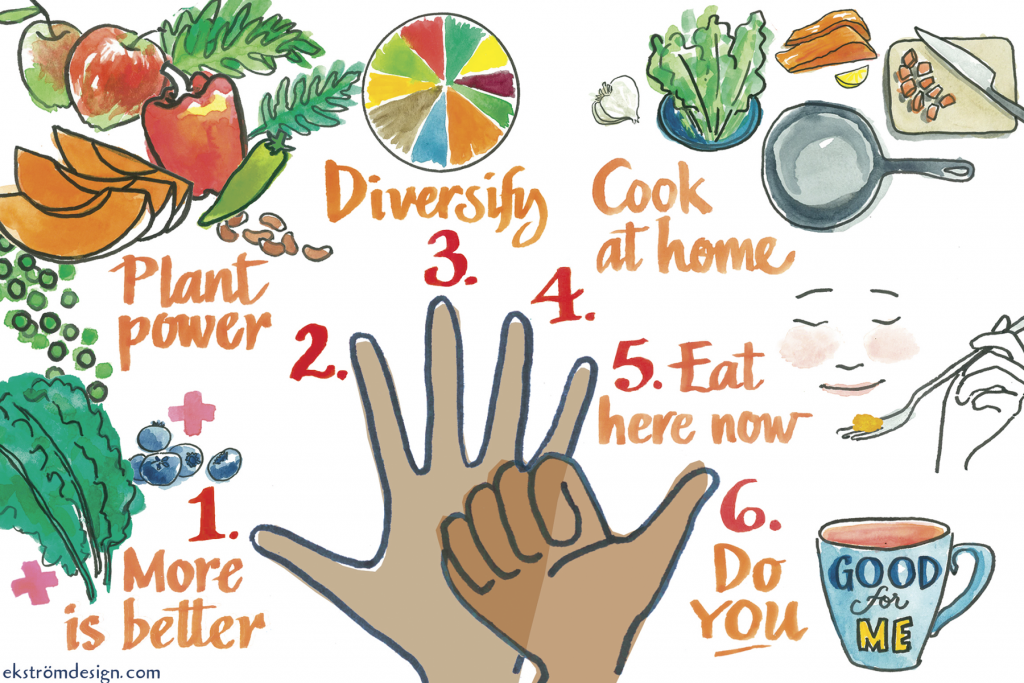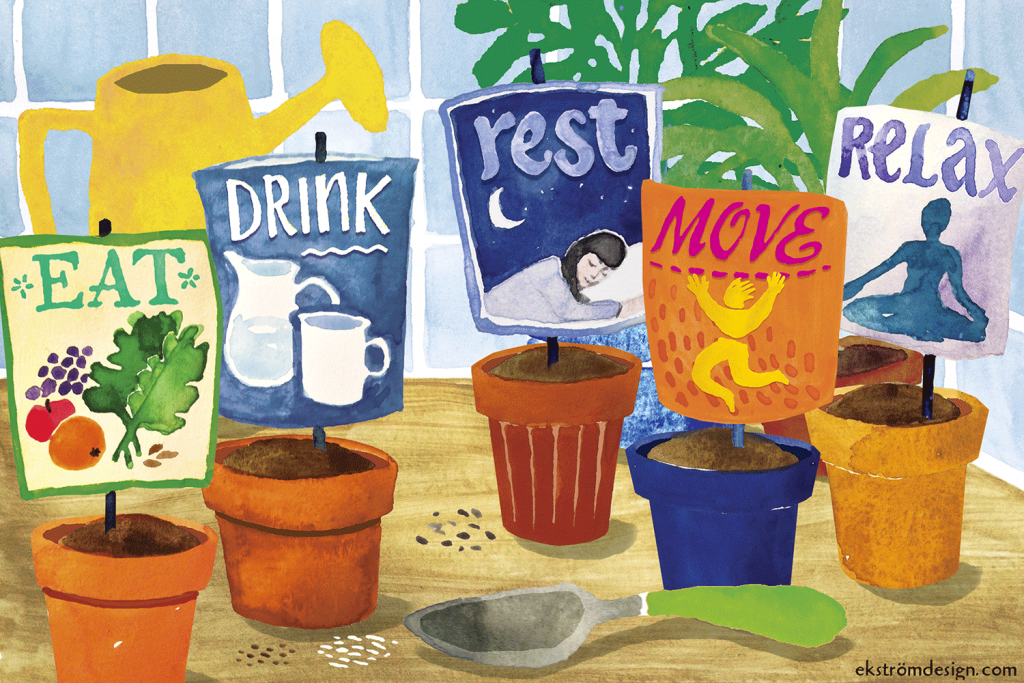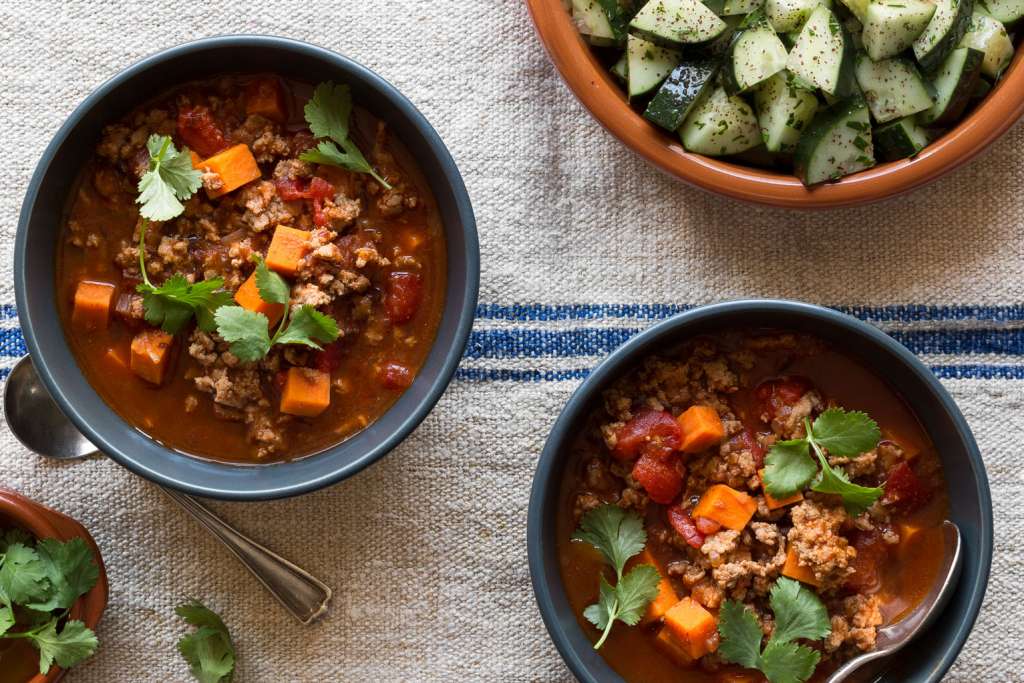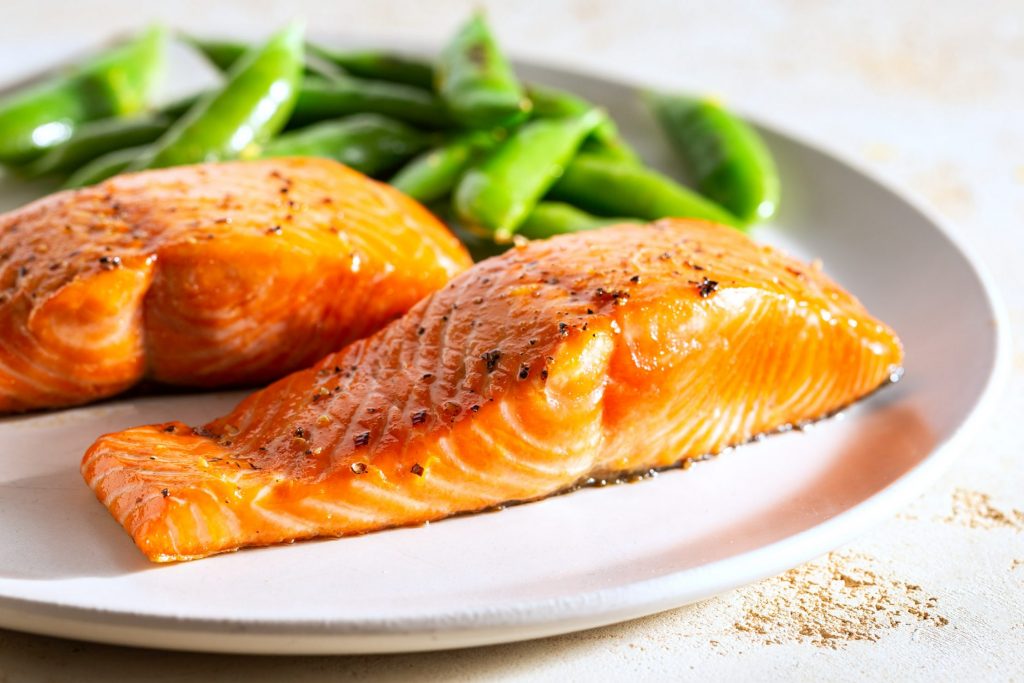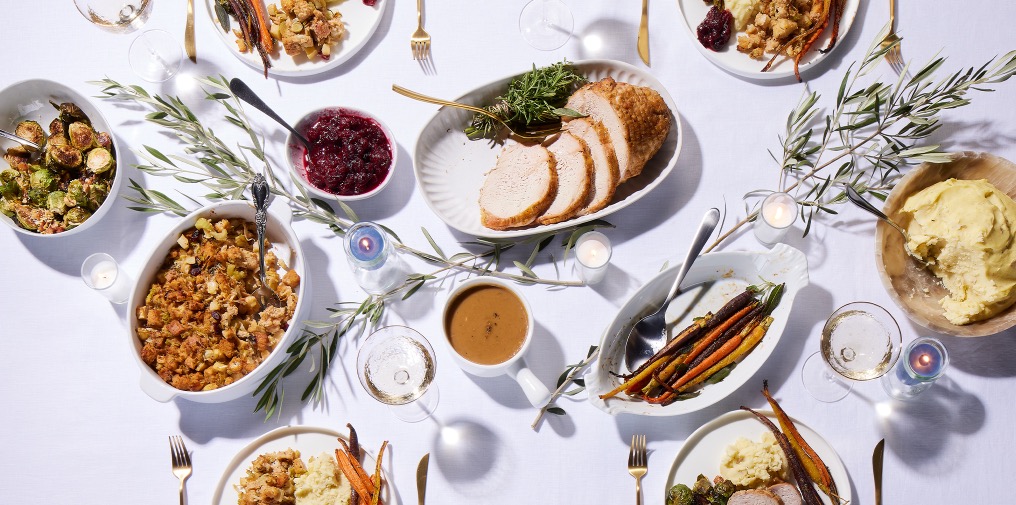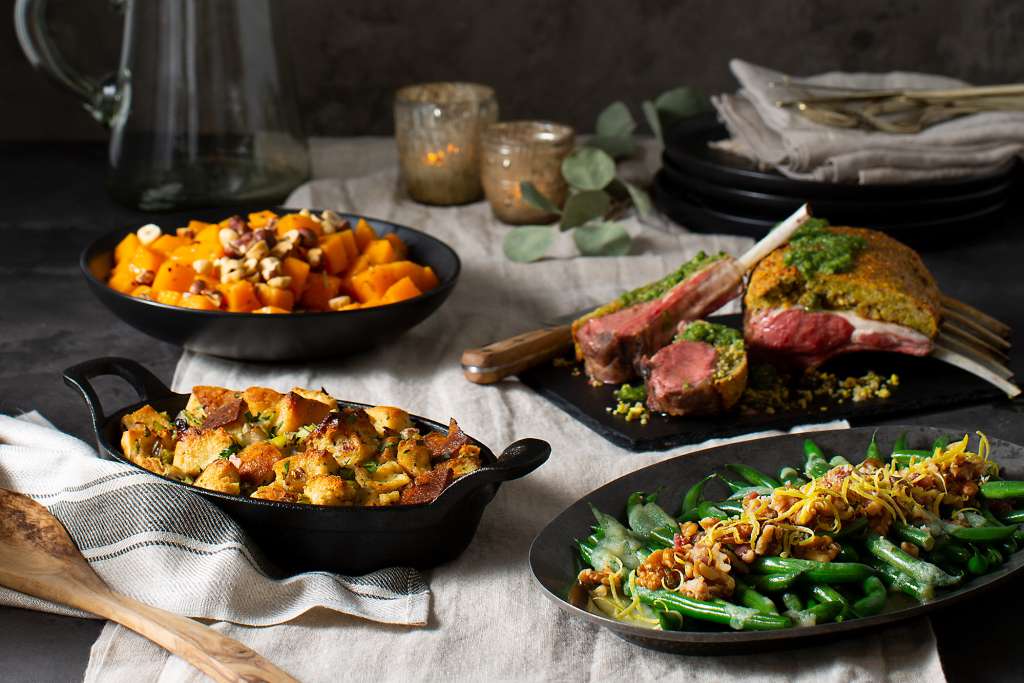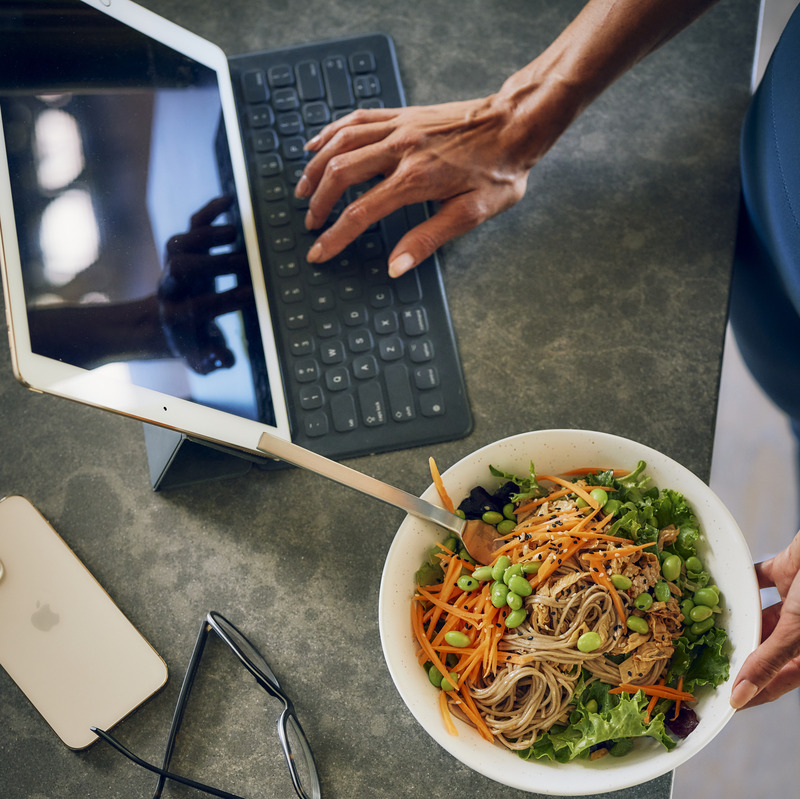Guilt-free Holidays

In a world where what you eat is seen as a reflection of who you are, it’s no wonder that a platter of holiday cookies can ignite an internal debate over whether to take the cookie, what it says about you if you do, and the impact that cookie could have on your long-term health. These internal meltdowns over food can lead to psychological stress that can be far more harmful in the long run than the cookie itself.
If you find yourself dodging your holiday parties to avoid breaking your diet, or losing sleep over that cookie, read on.
Lindsey Kane, Sun Basket’s Director of Nutrition,, offers some advice on how healthy ambitions and holiday celebrations can coexist.
Connect with people you love
Remember that food is just one part of the party—your friends and family are there, too. Don’t let an obsession with food cause you to neglect your loved ones. Set an intention to devote your attention to the humans who bring joy to your life. You’ll be less occupied with what you did or did not eat and will walk away with a full heart and a happy belly.
Ditch the all-or-nothing mentality
We’ve all experienced times when one “unhealthy” choice opens the floodgates to a day of careless eating. “I ate a doughnut for breakfast, so this day is a wash.” Next thing you know, you give in to a binge of thoughtless eating.
Embrace intuitive eating
Many of these strategies fall in line with the principles of intuitive eating, a strategy based on research by Evelyn Tribole MS, RDN and Elyse Resch MS, RDN. If there’s one concept of intuitive eating that’s most important when it comes to indulging, it’s remembering that one single food choice does not define your self-worth. We are all so much more than what we put in our mouth. Food is more than just essential nutrients. It’s a key conduit for connecting with others. What you do every day matters more than what you do once in a while.
Expect the unexpected
Even with strategies in place, the reality is you may indulge in something you didn’t plan on. That’s okay, as life is unpredictable and perfection doesn’t exist. Accept this and establish a zero-tolerance-for-negativity policy. Prepare a statement to help silence any negative talk, similar to the way a PR rep delivers a statement to quiet negative publicity. Try this: “There’s no such thing as failure, only feedback. Live, learn, and move on.”
No more good food, bad food
Labels actually make matters worse and give food more power than it deserves. Studies have found that when foods are labeled “bad” or “unhealthy,” desire for them increases. Conversely, when food is advertised for its health benefits, its appeal declines. To keep food in its place, remember it’s just food.
Plan indulgences
There’s a BIG difference between mindlessly eating three cookies you didn’t plan on eating, and mindfully enjoying three cookies that you chose to eat. When you’re mindful, the chances of stopping at just one or two cookies are much higher. Planning for indulgences allows you more control over them and helps you avoid a negative downward spiral.
Rebound, Relaunch, Recover
Unplanned indulgences can lead to a sense of chaos. When you deliberately choose a treat, you can enjoy yourself and then have a plan to get back on track. A fun way to look at this is to come up with a few “when, then” scenarios and fill in the blanks like a Mad Lib. This can be as simple as, “I am going to have a cookie, drink a glass of water, and go catch up with Aunt Mary.” This allows you to enjoy a treat and then immediately cues a positive action to get you back to your healthy habits.
Remember the big picture
The whole point of optimizing health is to support a fulfilling and happy life. When the approach you take to eating has you sacrificing the social connections that give your life meaning, or becomes so limiting it reduces your overall happiness, you’ve lost sight of what really matters.
Artwork by Ekström Design
